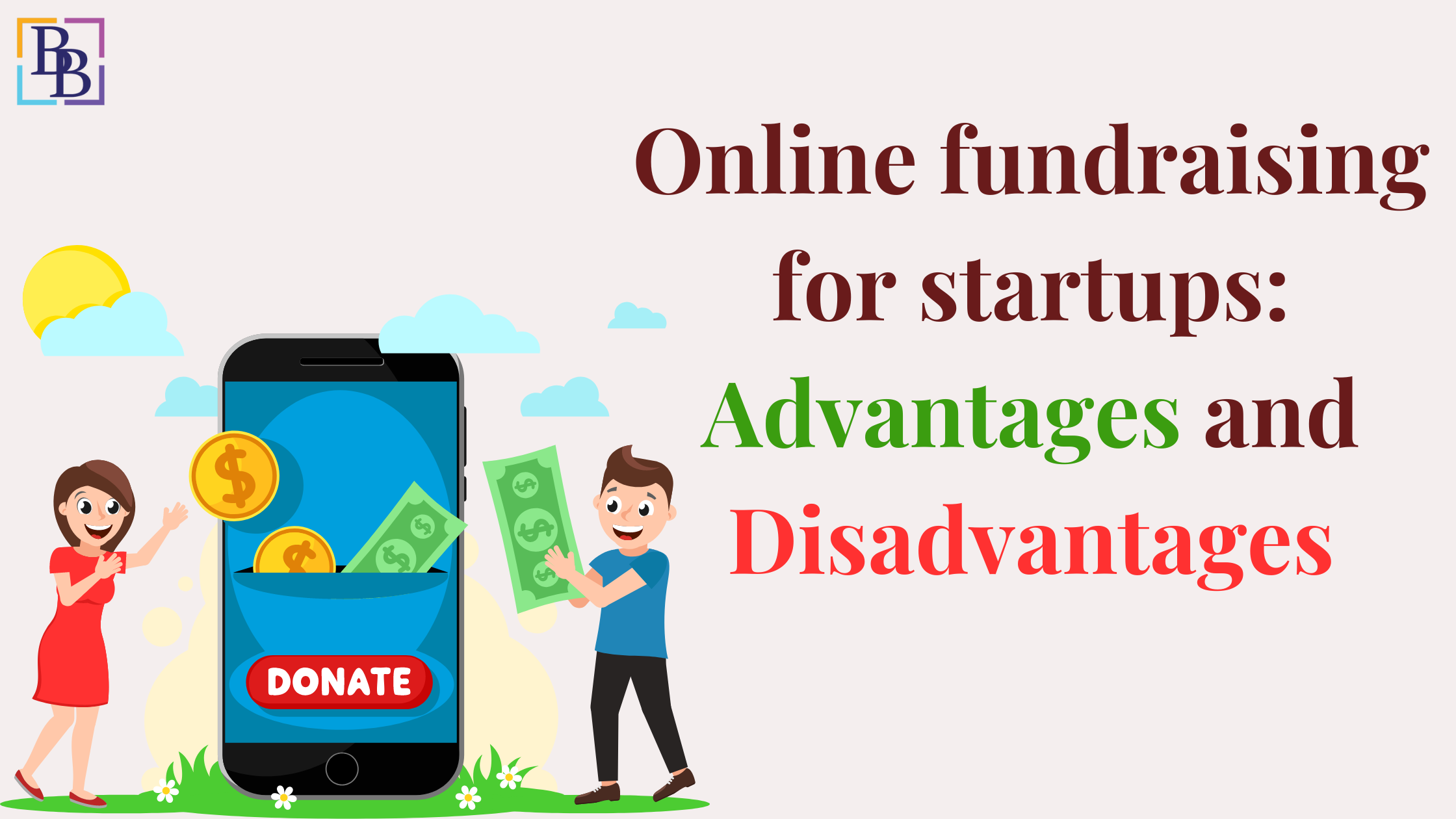In the modern world, startups play a crucial role in the economy. However, launching a company involves a large financial commitment, and many business owners struggle to raise the required capital. Because of this, a lot of companies use internet fundraising platforms to raise the money they require. While internet fundraising may be a successful approach to generate money, there are both benefits and downsides that businesses should consider before beginning on a fundraising effort.
Pros of Online Fundraising for Startups
-
Access to a Larger Audience
Online fundraising offers companies access to a wider audience than conventional fundraising techniques, which is one of its main advantages. Startups may connect with prospective investors and supporters from all around the world by using online distribution channels like Kickstarter, GoFundMe, or Indiegogo. Startups situated in tiny areas, where access to conventional financing alternatives may be constrained, may particularly benefit from this.
-
Lower Fundraising Costs
Online fundraising also often has cheaper fundraising expenditures than more traditional approaches, which is a benefit. For instance, businesses may utilize social media and other online platforms to advertise their campaigns and contact potential investors rather than engaging a staff of fundraisers or spending money on pricey marketing efforts. Startups may be able to save money this way and concentrate their energy on other aspects of the business.
-
Flexibility in Funding Options
Additionally, online fundraising gives entrepreneurs more freedom when it comes to funding choices. Startups can select from a variety of fundraising mechanisms on several online platforms, including contributions, equity crowdfunding, and reward-based crowdfunding. As a result, businesses may customize their fundraising efforts to suit their unique requirements and preferences.
-
Speed of Funding
Also, online fundraising may be a lot quicker than conventional fundraising techniques. Startups may simply build up their campaigns and immediately reach a wide audience. This can be particularly crucial for companies that have a pressing need to acquire money rapidly in order to achieve a deadline or seize a window of opportunity.
Cons of Online Fundraising for Startups
-
Limited Control Over Branding and Messaging
Online financing may have drawbacks for startups since they may have little control over their branding and messaging. Startups may be compelled to adhere to certain standards or laws that limit the kind of messaging they may use while using internet platforms. As a result, it could be more challenging for businesses to stand out from the crowd and draw in prospective investors.
-
High Competition
Another potential drawback of online fundraising is the high level of competition. With so many startups vying for the attention and support of investors, it can be difficult to stand out from the crowd. This can be especially challenging for startups that are operating in crowded markets or industries.
-
Limited Investor Relationships
Relationships with investors may be restricted as a result of online fundraising. Online fundraising frequently involves a single transaction, as opposed to traditional fundraising approaches, where businesses may have numerous chances to develop long-term connections with investors. This might make it more challenging for entrepreneurs to receive future investment or to continue receiving guidance and support from their backers.
-
Risk of Fraud
Finally, there is a chance of fraud while conducting internet fundraising. It might be challenging to discern between legitimate fundraising initiatives and frauds with so many projects running online. Due to this, it may be more challenging for investors to have faith in the firms they are funding, which may further undermine trust in online fundraising platforms as a whole.
Tips for Successful Online Fundraising
For startups that decide to pursue online fundraising, there are a number of tips that can help increase their chances of success. Some of these tips include:
-
Develop a Compelling Story
Startups must create a compelling narrative to differentiate themselves from the competition and convince investors to support them. This may entail showcasing the issue the firm is attempting to address, the potential effect of the venture, or the credentials and background of the founding team.
-
Leverage Social Media and Other Online Channels
Startups should use social media and other online platforms to advertise their fundraising initiatives in order to reach a wider audience. This might entail producing interesting material, providing updates and accomplishments, and interacting with possible backers and investors.
-
Be Transparent and Honest
Finally, startups should be transparent and honest throughout the fundraising process. This includes being clear about the goals and objectives of the campaign, providing accurate information about the business and its financials, and being responsive to questions and concerns from investors.
In conclusion, internet fundraising may be a successful method for startups to raise the money they require to launch their enterprises. Before beginning a campaign, businesses should carefully weigh the benefits and drawbacks of online fundraising. Startups may make wise choices about how to raise the money they require for success by being aware of the possible advantages and disadvantages of internet fundraising. In the end, the choice to pursue online fundraising should be based on the unique requirements and objectives of the firm as well as the tools and abilities at the founding team's disposal.
